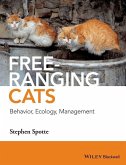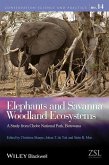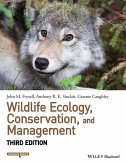Feral and stray domestic cats occupy many different habitats. They can resist dehydration for months by relying exclusively on the tissue water of their prey allowing them to colonize remote deserts and other inhospitable places. They thrive and reproduce in humid equatorial rainforests and windswept subantarctic islands. In many areas of the world feral cats have driven some species of birds and mammals to extinction and others to the edge, becoming a huge conservation concern. With the control of feral and stray cats now a top conservation priority, biologists are intensifying efforts to understand cat behaviour, reproductive biology, use of space, intraspecies interaction, dietary requirements, prey preferences, and vulnerability to different management strategies. This book provides the most comprehensive review yet published on the behavior, ecology and management of free-ranging domestic cats, whether they be owned, stray, or feral. It reviews management methods and their progress, and questions several widely accepted views of free-ranging cats, notably that they live within dominance hierarchies and are highly social. Insightful and objective, this book includes: * a functional approach, emphasizing sensory biology, reproductive physiology, nutrition, and space partitioning; * clear treatment of how free-ranging cats should be managed; * extensive critical interpretation of the world's existing literature; * results of studies of cats in laboratories under controlled conditions, with data that can also be applied to pet cats. Free-ranging Cats: Behavior, Ecology, Management is valuable to ecologists, conservation scientists, animal behaviorists, wildlife nutritionists, wildlife biologists, research and wildlife veterinarians, clinical veterinarians, mammalogists, and park and game reserve planners and administrators.
Dieser Download kann aus rechtlichen Gründen nur mit Rechnungsadresse in A, B, BG, CY, CZ, D, DK, EW, E, FIN, F, GR, HR, H, IRL, I, LT, L, LR, M, NL, PL, P, R, S, SLO, SK ausgeliefert werden.









